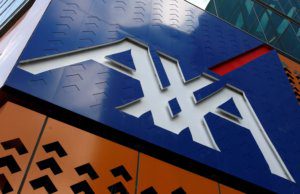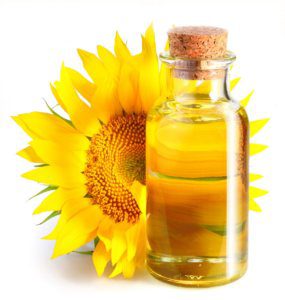
AXA Group (France) has announced the sale of 100% of AXA Insurance and AXA Life Insurance to Fairfax Financial Holdings Limited (Fairfax, Canada), the group said in a press release. According to the report, 50% of AXA Insurance belongs to UkrSibbank. Fairfax, headquartered in Toronto (Canada), is a financial services holding company that through a network of its own companies provides investment management, property and liability insurance, and reinsurance. In February 2015, Fairfax announced the purchase of 100% in QBE Ukraine insurance company, later renaming the company as Colonnade Ukraine.
Fairfax as of the end of 2017 owned 28.06% of Astarta Holding N.V. (the Netherlands), the holding company of Astarta agro-industrial holding.
AXA Insurance (Kyiv) is the leading insurance company in Ukraine. For the first half of 2018 it collected more than UAH 915.6 million of gross insurance premiums, which is 14% more than in the same period of 2017. The total amount of insurance payments for this period amounted to UAH 455 million, which is 17% more than in 2017.
AXA Insurance belongs to AXA Group (France), represented in the Ukrainian insurance market since 2007. The company has more than 780 employees and 1,220 agents throughout Ukraine. AXA Life Insurance was registered in July 2013.

Ukraine in January-September 2018 exported fruits and berries in the amount of $157 million, which is 40% more compared to the same period last year. According to the Ukrsadprom association, the main products in this group were walnuts, which were delivered for $69 million, frozen fruits and berries worth $61 million, apples and pears for $10 million.
“The growth in exports of walnuts (from 13,000 tonnes in the first nine months of 2017 to 20,000 tonnes in the same period of the current year), apples and pears (from 9,000 tonnes to 29,000 tonnes respectively) was the most notable in natural terms,” according to the website of the association.
The main sales market remained the European Union, supplies to which bring about two-thirds of all foreign exchange earnings. In January-September 2018 the largest purchases of fruits were made by Poland ($32.3 million), France ($11.7 million), Belarus ($10.9 million), Turkey ($10.6 million), the Netherlands ($8.8 million), Germany ($7.4 million), and Italy ($7.2 million).
“If not to take into account imports of exotic fruits to Ukraine (mainly citrus fruits and bananas), for the three quarters of 2018 the surplus of foreign trade in fruits and berries reached $75 million,” the association said.
Ukrainian apples are exported to more than 50 countries, while they are mainly purchased by Belarus (43%), Moldova (20%), and Sweden (10%).

Kernel, one of the largest Ukrainian agricultural groups, plans to launch an oil processing plant in Starokostiantyniv district of Khmelnytsky region in early 2021, according to the annual report of Kernel Holding S.A. (Luxembourg). “The plant for processing oilseeds is located in the middle of western Ukraine, in the area with high sunflower yields and production,” chairman of the board of directors Andriy Verevsky said.
According to him, the capacity of the processing plant will be one million tonnes of grain per year, the volume of oil storage facilities is 100,000 tonnes. Commissioning is scheduled for early 2021. The construction of a combined heat and power plant with a capacity of 22 MW running on sunflower husk is also envisaged.
According to Verevsky, the company plans by the end of 2020 to install similar heat and power plants at all its plants, their total capacity will be 72 MW.
In addition, Kernel plans in 2019 to put into operation the second grain terminal of the company in Chornomorsk.
The launch of the first phase of the second terminal TransGrainTerminal with a capacity of one million tonnes per year is scheduled for January 2019. The entire terminal will be completed by the end of 2019, its capacity will be 4 million tonnes of grain per year.

Global energy and commodity price reporting agency Argus Media has launched a Ukrainian natural gas price assessment to bring transparency to a rapidly evolving market.
The new assessment is an important step in the evolution of a freely traded Ukrainian gas market, which has developed since imports from Europe began at the end of 2015, replacing supplies from Russia. A growing number of international trading companies are active in the market, along with domestic gas producers, traders and consumers,” according to a report on the company’s website.
“Ukraine is a large market, and the country has ambitions to align with the EU’s rules on natural gas and electricity, which could make it a more attractive location to trade. Ukraine consumed 30.6 billion cubic meters of natural gas in 2017, placing it in line with some of Europe’s biggest markets. And Ukraine operates a gas storage system that is larger than any in Europe, at a time when market flexibility is at a premium. Trading firms and gas companies inject supply into storage during the summer when demand is low. As temperatures fall in the winter, storage withdrawals are made to meet heating requirements,” it reads.
“Argus is dedicated to providing independent coverage of the Ukrainian gas and power markets. Our focus on Ukraine is because of its growing importance to the European energy system, rapid development and size. This assessment is the culmination of dedicated research and development on the part of our editorial teams in Kyiv and London,” Argus Chairman and Chief Executive Adrian Binks said.
Argus’ Kyiv office opened in 2008, producing motor fuel, LPG and other price assessments, news and analysis.